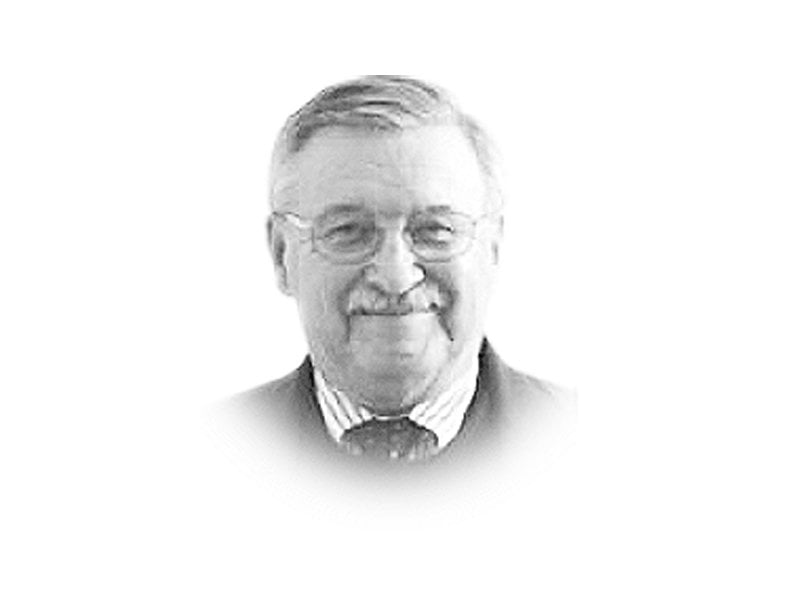
Nor is it a day to be writing about, or even thinking of, South Asia’s other myriad, seemingly intractable, problems. One tends to lose hope in any simple recounting of the miseries of the region. Save the dark thoughts for the dark days of winter. Let us, instead, imagine that the conjunction of this spring’s elections in Afghanistan and India, new leaders, emerging in both countries with new ideas and different mindsets, offers unique possibilities to transform the political dynamic of the subcontinent. And let us understand and hope that Pakistan’s leaders understand that the ability of these new leaders to transform that dynamic depends critically on how Pakistan reacts to their arrival on the scene.
The necessary condition for such transformation is that the new leaders be willing and able to move away from entrenched ideas and stereotypes. The necessary and sufficient condition is that Pakistani leaders are able also to also eschew old patterns of thought and the fallacies behind those patterns and embark in their own right on a long and difficult transformation process. First, they will have to grapple realistically with the problem of growing militancy in the society. From the outside, it is difficult to discern whether there is an evolving consensus between the civil and military leaders on the need to slowly and carefully cleanse the scourge of militancy in the country.
By this I mean to not only bring North Waziristan under government writ by force of arms, but also to deal with the growing number of jihadis now in the heartland of Punjab. In that respect, I commend the May 7 article by Fahd Humayun from Foreign Policy reprinted by the Jinnah Institute entitled “Patrolling Pakistan’s South Corridor”, which describes the sizeable flow of militants from Fata to South Punjab — something we knew was taking place but not in the dimensions it now appears. Dealing with these groups ad seriatum will not be easy but will be essential if the country is ever to be recaptured.
At the same time, a similar consensus must develop to open trade with India and to begin to talk rationally with the Indians about the disputes that have divided the two countries for over 65 years. And, finally, Pakistan must bring a fresh understanding to its interests in a stable Afghanistan and a new mindset on how to achieve those interests no matter what scenario develops in Afghanistan after 2014, whether a successful peace process or a return to civil war. This is a tall order, but if a synergy ever develops that reinforces the buds of transformation that this spring brings, the long, if gradual, Pakistani slide into dysfunctionality could be halted.
I met and brunched this bright, sunny spring morning with two Pakistani journalist friends who have been forced to leave the country because their lives are, or were, in danger. A third, Raza Rumi, I saw only 10 days ago at a think tank presentation. My friends spoke this morning with emotion and conviction, to a very sympathetic listener, of the serious dangers that face honest and courageous journalists in Pakistan; yet what impressed me most was their refusal to throw in the sponge on Pakistan. They insisted that good outcomes are still possible. Was it only that the spirit of spring was on them? Or will this spring, with its profusion of tipping points, begin a rebirth of effective governance in South Asia?
Spring, of course, is ambiguous. That is because, over time, the leaves die and fall, the flowers disappear, and the days become darker again. But in spring they are reborn, an ability that has escaped humans. Poet Phillip Larkin wrote the lines that are the title of this piece; the poem ends, “yet still the unresting castles thresh, in full grown thickness every May, last year is dead, they seem to say, begin afresh, afresh, afresh.” Yes Pakistan needs to begin afresh. Now is the time.
A shorter version of this opinion piece was published in The Express Tribune, June 10th, 2014.
Like Opinion & Editorial on Facebook, follow @ETOpEd on Twitter to receive all updates on all our daily pieces.
COMMENTS (1)
Comments are moderated and generally will be posted if they are on-topic and not abusive.
For more information, please see our Comments FAQ




1725784957-0/Tribune-Pic-(17)1725784957-0-165x106.webp)







You are a very strange character Sir, the man from the 20th century is having the liberty by walking into the 21st century, telling todays visionary leaders what they must or mus'nt do. You infact remind me of the Mafia establishments in the USA who undertake specific missions causing death and destruction against one or more targets followed by the arrival of several gabage collection trucks whose function is to clean up the mess lying around. You have quite an experience with the destablising missions of your former bosses Presidents of the USA, who after their completion ask you to restore peace in the region..
Rex Minor